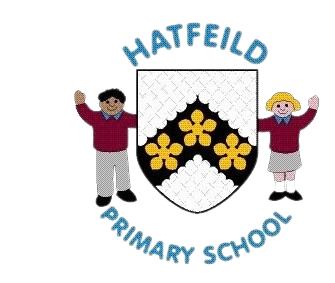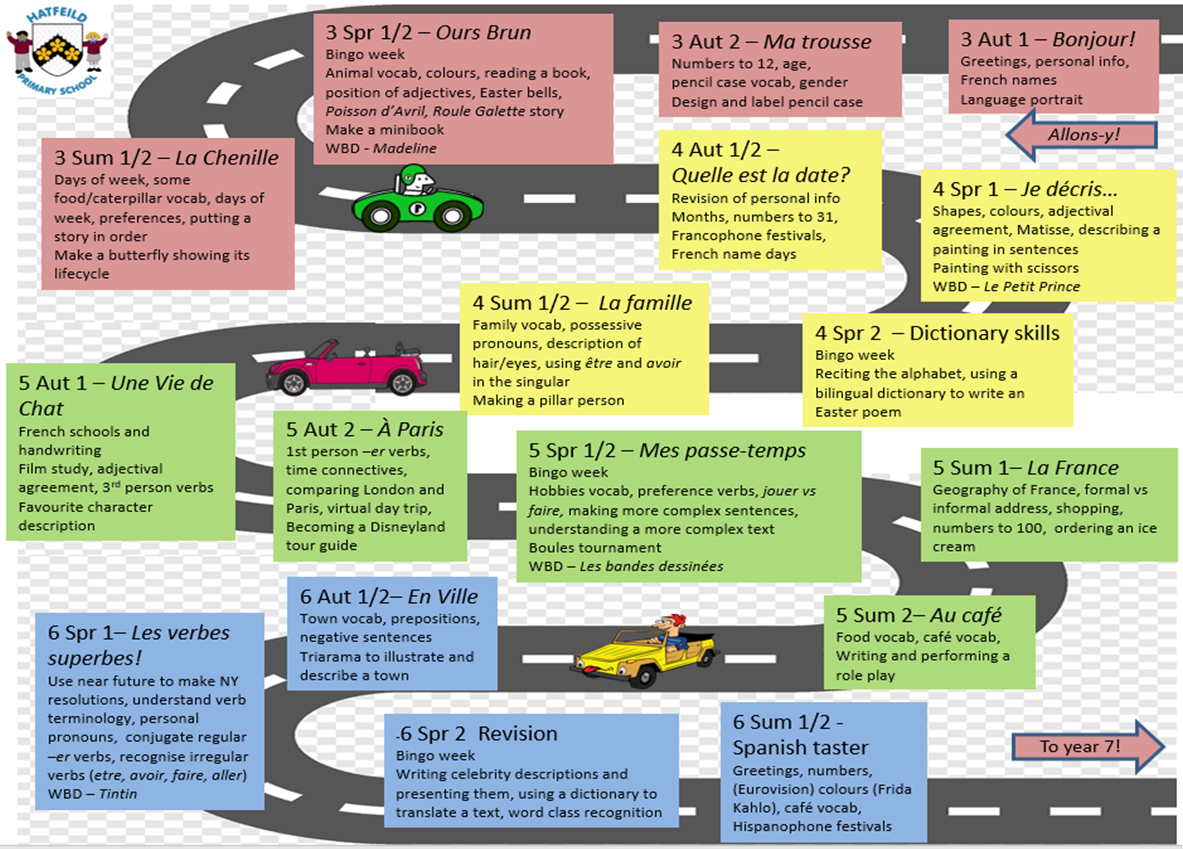Modern Foreign Languages
Intent
“The mind is not a vessel to be filled but a fire to be kindled.” Plutarch
At Hatfeild, it is our aim to provide engaging and high-quality language lessons which offer a valuable educational, social and cultural experience for all learners. We believe that the study of a foreign language:
-
Helps children to develop communication skills and extends their knowledge of how language works, including their own.
-
It gives children a new perspective on the world, encouraging them to understand their own cultures and those of others better.
-
It creates a level playing field upon which children of all abilities and backgrounds can achieve and increase in confidence.
A specialist teacher delivers a carefully-planned scheme of work spanning years 3 to 6, aiming to develop the key skills of speaking, listening, reading and writing. The scheme ensures progression by building on and recycling both language and skills each year. Language-learning techniques, which are transferable to future language studies, are embedded in the lessons. Children are encouraged to share and use their own language experiences and backgrounds to deepen their learning. We aim to provide a safe, encouraging environment in which all language-learners can participate fully.
Our intent is to provide children with sound language skills and a keen enthusiasm for engaging with the wider world as they set off into secondary education.
Implementation
French is taught from years 3 to 6 once a week by a specialist teacher. Children in year 6 have a taster term of Spanish after Easter.
The key skills of speaking, listening, reading and writing are given equal consideration throughout the scheme of work.
Resources
Children learn French through songs, games, stories and videos in the target language. Authentic materials are used as often as possible. Reading and writing tasks are taught using bespoke resources alongside French picture books, brochures and maps.
We endeavour to introduce a variety of Francophone and Hispanophone cultures in resources and vocabulary.
References and comparisons are made with other languages that children have already been exposed to, and they are encouraged to share their own language experiences in class. This helps them to develop transferable skills and boosts confidence.
Many of the sessions are delivered in the target language, allowing our children to develop their listening and speaking skills. Opportunities to hear native speakers and different accents are offered using online sources.
Children in year 6 have a taster term of Spanish after Easter. The emphasis here is on speaking, listening and reading skills that they can use in real-life situations. This gives children the opportunity to use those transferable skills and sends them off to secondary school with renewed confidence and enthusiasm for languages.
The mechanics of language
Vocabulary is taught within a context that uses repeated structures to ensure that children can adapt it for use in different written and spoken situations throughout their four years of learning. Much use is made of games and songs for revising vocabulary.
Knowledge organisers are used for each topic to help children remember more and also as a self-assessment tool.
The teaching of phonics is embedded in the learning of vocabulary with explicit teaching and practice in years 3 and 4 to help with pronunciation and spelling. This is monitored through quizzes and games throughout the year groups.
Grammar is introduced with a light touch from year 3, increasing to discrete lessons in years 5 and 6. Children are familiarised with grammar terminology that will be useful to them in KS3.
The road map below shows the scheme of work across all four year groups.
Impact
Learning is evidenced in folders that are carried through from year 3 to year 6, so children can evaluate their own progression. A combination of summative and formative assessment is used to ensure children are achieving the aims of the National Curriculum Programme of Study (2014).
Children are enthusiastic about their language-learning and keen to share their own language experiences. They have a can-do approach to attempting to write, speak and understand a foreign language and have mastered learning skills that are transferable to future language studies.
Most importantly, they show an openness to engaging with the wider world in terms of language and culture.

